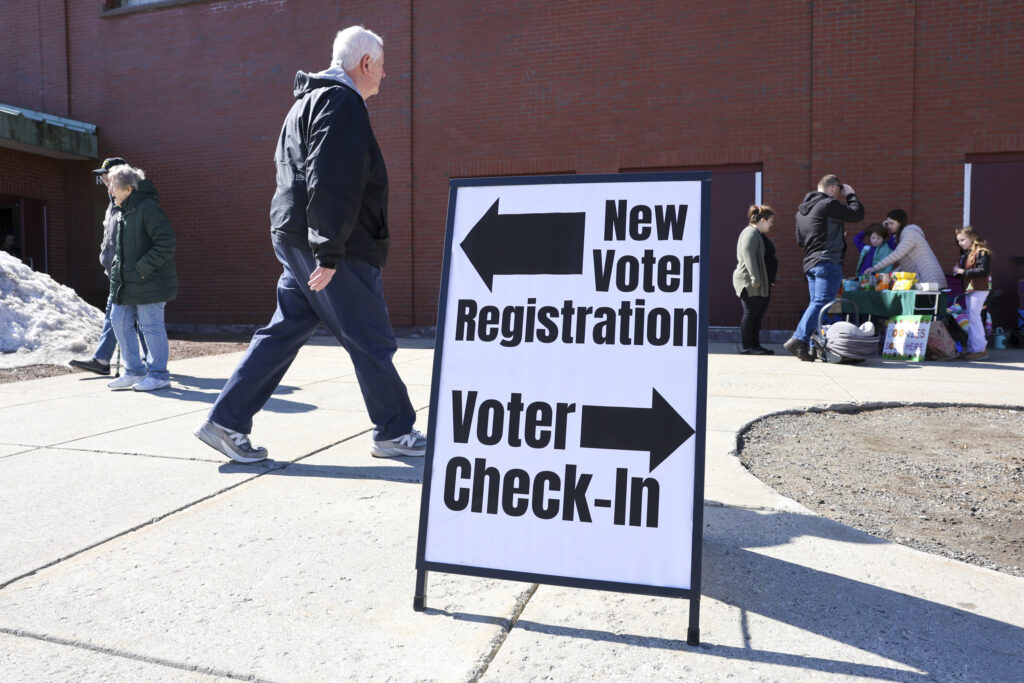Voters Challenge New Hampshire Over Extreme Law Targeting Mail Voting

A new lawsuit filed Tuesday aims to stop New Hampshire, already one of the most difficult states in which to vote by mail, from enforcing even more extreme restrictions.
The suit challenges Senate Bill 287 (SB 287), a Republican-backed law signed last month by Gov. Kelly Ayotte (R) that imposes strict identity verification requirements on anyone applying for an absentee ballot. Voting rights groups say the law will “entirely prevent” some voters from casting ballots.
Under the new rules, voters must provide proof of identity every time they apply to vote by mail, for every election. That proof must come in the form of a photocopied ID, a notarized signature or in-person ID check at the clerk’s office.
Voters who can’t meet one of those conditions won’t receive a mail ballot. And if they also can’t vote in person, they may not be able to vote at all.
“SB 287 will impose severe and unreasonable burdens on individuals’ ability to vote,” the complaint states. “A voter who is unable to satisfy any of these requirements and who is unable to appear to vote in person will be unable to vote.”
The plaintiffs argue that the law violates New Hampshire’s constitution, which guarantees free and equal elections.
“Every inhabitant of the state of 18 years of age and upwards shall have an equal right to vote in any election,” the state constitution reads. “Voting registration and polling places shall be easily accessible to all persons including disabled and elderly persons.”
Seniors and voters with disabilities — who don’t have ready access to the required documents and who can’t get to the polls easily — are at risk of being disenfranchised by this law, the suit argues, as well as overseas, military and student voters living away from home.
Supporters of the law claim SB 287 is needed to protect election security and prevent fraud. But even New Hampshire’s top election officials have repeatedly stated that voter fraud is virtually nonexistent in the state.
Former Gov. Chris Sununu (R), in the aftermath of the 2020 election, dismissed voter fraud claims as baseless.
“There is no evidence of widespread voter fraud,” Sununu said. “Folks voted at an unbelievable rate, we counted, it looks good.”
The plaintiffs call the law a “solution in search of a problem” and argue that even if a vague interest in election integrity exists, it cannot justify such far-reaching barriers.
“New Hampshire has long enjoyed high-turnout, secure, and fraud-free elections,” the complaint adds. “There is no state interest that is sufficiently weighty to justify the substantial burdens that SB 287 places on the right to vote.”
If allowed to stand, SB 287 could create a dangerous blueprint for other states seeking to suppress absentee voting under the guise of “election integrity.”
President Donald Trump recently escalated the threat to mail voting — pledging an executive order to ban mail‑in ballots and voting machines nationwide ahead of the 2026 midterms.
The Elias Law Group (ELG) represents the plaintiffs in the case. ELG Firm Chair Marc Elias is the founder of Democracy Docket.